How to Choose the Right Medical Laptop Cart for Enhanced Workflow Efficiency in Healthcare Facilities
In the fast-paced environment of healthcare facilities, optimizing workflow efficiency is crucial for both patient care and staff productivity. A significant component of this optimization is the effective use of technology, where the role of a medical laptop cart becomes paramount. According to a report from the Healthcare Information and Management Systems Society (HIMSS), hospitals that successfully integrate mobile computing solutions see a 25% increase in staff time dedicated to patient care. Furthermore, the ergonomic design of a medical laptop cart enhances accessibility to electronic health records (EHR), allowing healthcare professionals to make informed decisions swiftly.
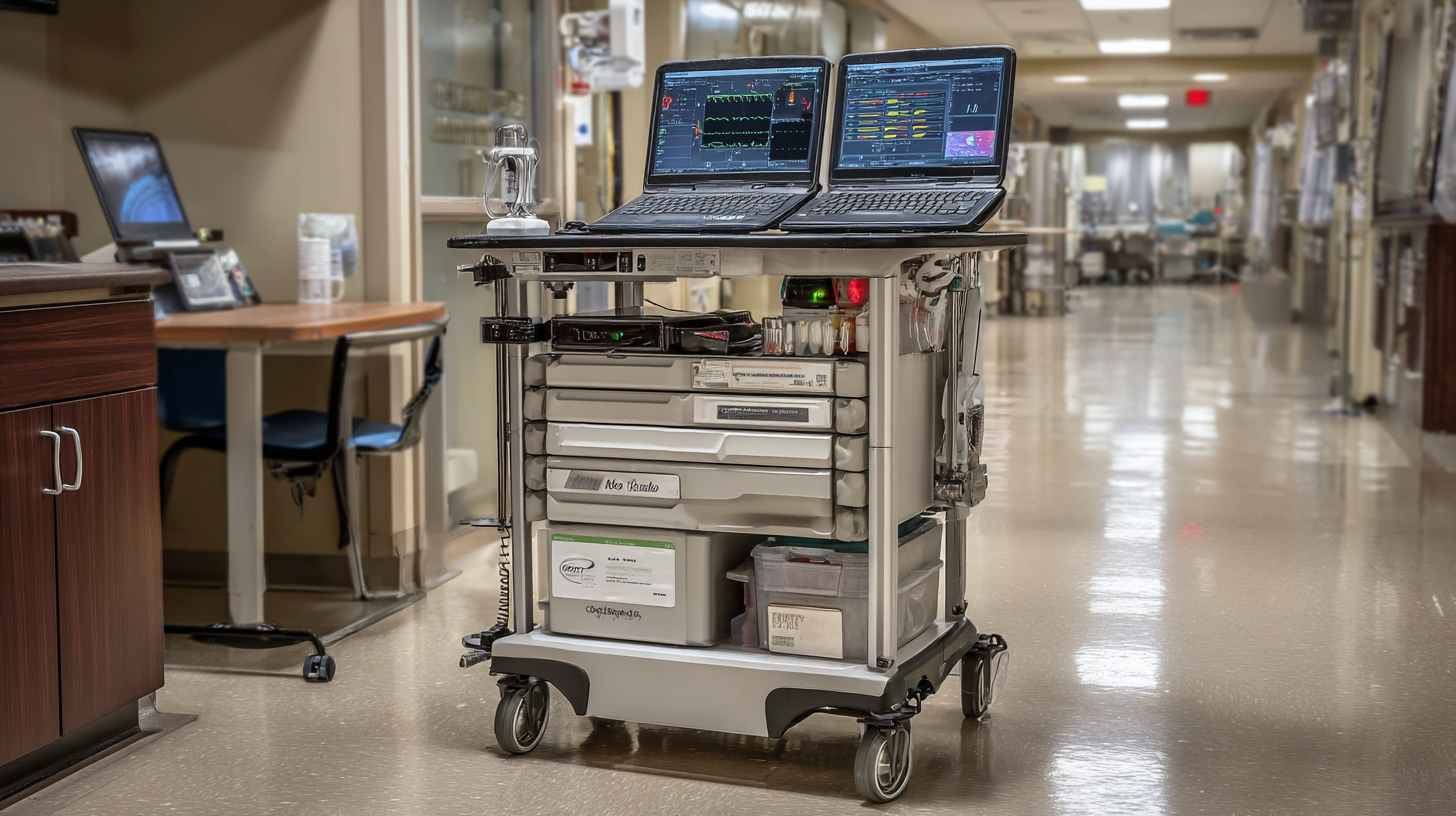
As healthcare stakeholders aim to improve operational efficiency, selecting the right medical laptop cart—considering factors such as height adjustability, mobility, and storage solutions—becomes an essential strategic decision that can lead to substantial gains in productivity and patient satisfaction.
Consider Your Specific Workflow Needs When Selecting a Medical Laptop Cart
When selecting a medical laptop cart, it's crucial to align the choice with the specific workflow needs of your healthcare facility. According to a report by the Healthcare Information and Management Systems Society (HIMSS), an effective workflow can boost productivity by over 30%. This demonstrates the importance of choosing a cart that supports the roles and tasks of healthcare professionals, enabling them to deliver optimal patient care.
Understanding the varied requirements for different departments is essential. For instance, a nursing team needs a cart that can easily maneuver through tight spaces while remaining sturdy enough to hold medical equipment. Utilize adjustable height features to cater to both seated and standing users, which can prevent fatigue during long shifts.
**Tip:** Assess the mobility features of the carts; a cart with smooth-rolling wheels can save time during patient rounds and reduce physical strain on staff.
Moreover, consider the incorporation of technology. A cart equipped with charging capabilities ensures devices are always ready for use, directly impacting the efficiency of patient data entry.
**Tip:** Look for carts with integrated security features for protecting sensitive patient information, as data breaches can result in significant financial penalties, as highlighted in a 2022 report by the Ponemon Institute.
Choosing the Right Medical Laptop Cart for Enhanced Workflow Efficiency
Evaluate the Key Features Essential for Healthcare Environments
Choosing the right medical laptop cart is a vital step towards enhancing workflow efficiency in healthcare facilities. Key features to evaluate include mobility, ergonomic design, and connectivity options. According to the latest industry reports, environments that utilize mobile workstations can see a 30% increase in nurse efficiency due to improved access to patient records and real-time data. Features such as lightweight materials and integrated battery systems not only enhance portability but also support uninterrupted workflow, especially in settings where time-sensitive patient care is crucial.
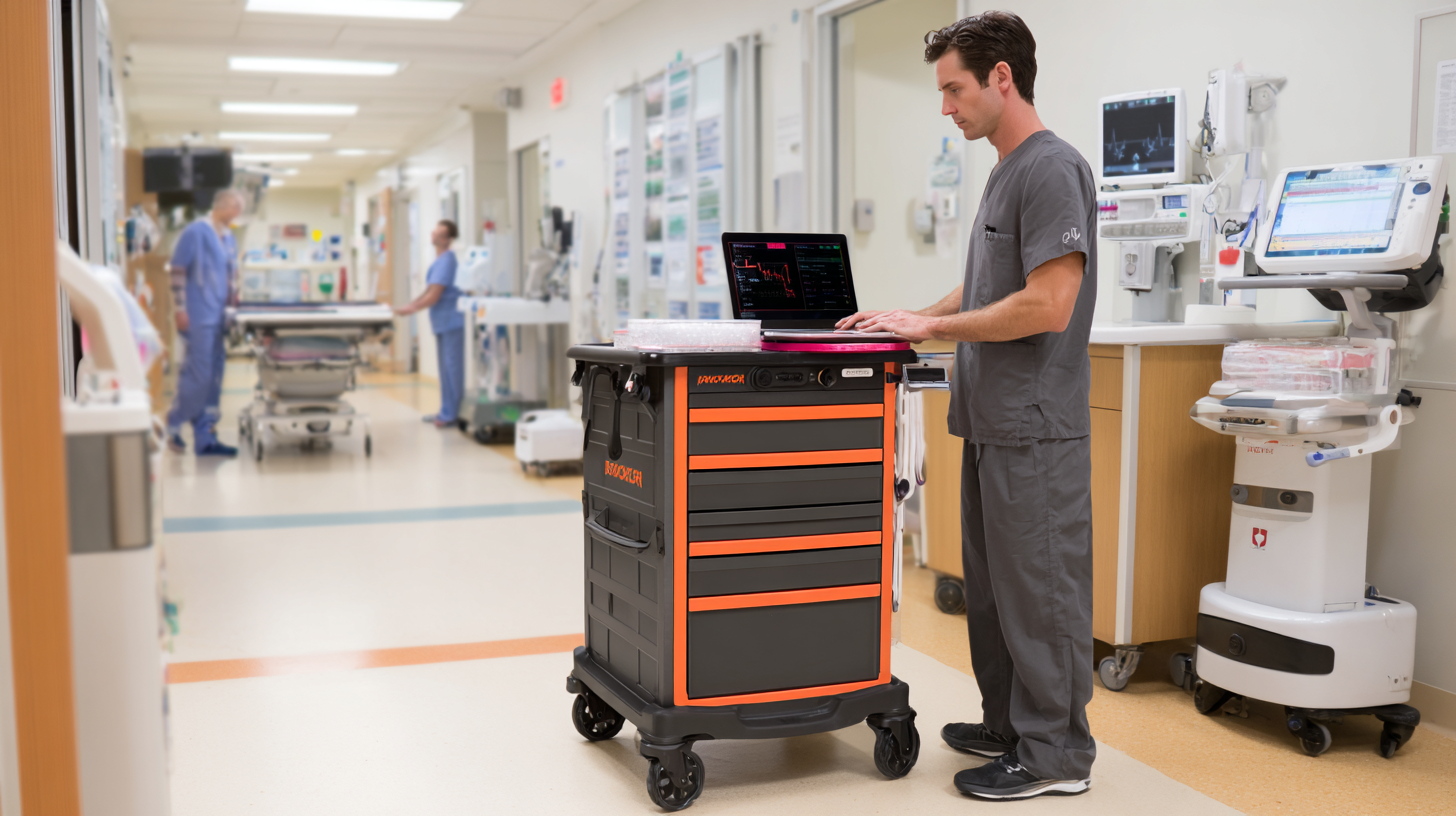
Moreover, adaptability is essential in healthcare, where different departments may have varying requirements. A study focusing on organizational culture and provider work satisfaction reveals that efficient tools can lead to higher employee satisfaction, directly impacting patient outcomes. Implementing carts with adjustable heights and customizable storage solutions can accommodate a wide range of user needs, fostering a responsive healthcare environment. With emerging technologies like IoT and AI, the integration of these advanced mobile solutions is becoming increasingly significant, ensuring that healthcare providers can offer safe and timely patient care while optimizing their workflow.
Assess the Mobility and Ergonomics of Medical Laptop Carts
When choosing a medical laptop cart, mobility and ergonomics are critical factors that can significantly impact healthcare workflows. A recent report highlights that about 70% of healthcare professionals find mobility to be a crucial feature in enhancing their efficiency. Mobile laptop carts need to accommodate quick movements throughout busy hospital environments while ensuring that clinicians can access patient information without unnecessary delays. Lightweight designs and adequately sized wheels can make navigating tight spaces more accessible, promoting better patient interactions and reducing time spent on administrative tasks.
Ergonomics also plays a vital role in the effectiveness of these carts. The same report indicates that up to 40% of nurses experience work-related musculoskeletal disorders, often exacerbated by poorly designed equipment. Carts equipped with adjustable height settings, easy-to-reach controls, and supportive accessories can alleviate strain and discomfort during long shifts. Moreover, research shows that ergonomic designs can enhance overall user satisfaction, with 75% of users reporting improved comfort and efficiency when using well-designed laptop carts. Thus, investing in ergonomic mobility solutions is not merely about aesthetics but is essential for fostering a healthier, more productive healthcare environment.
Review Compatibility with Medical Equipment and Technology
When selecting a medical laptop cart, compatibility with existing medical equipment and technology is crucial for optimizing workflow efficiency in healthcare facilities. A recent report by HIMSS Analytics indicates that over 80% of healthcare organizations prioritize device interoperability when investing in new technology, underscoring the importance of ensuring that your chosen cart can seamlessly integrate with other devices, such as barcode scanners, diagnostic machines, and electronic health record (EHR) systems.
Moreover, considerations around mobility and ergonomic design play a pivotal role in compatibility. A study published in the Journal of Healthcare Engineering found that carts designed for easy maneuverability significantly reduce the time healthcare professionals spend searching for equipment, which can lead to increased patient interaction time by up to 30%. Therefore, ensuring that the medical laptop cart is not only technologically compatible but also user-friendly is essential for enhancing overall workflow efficiency in fast-paced healthcare environments.
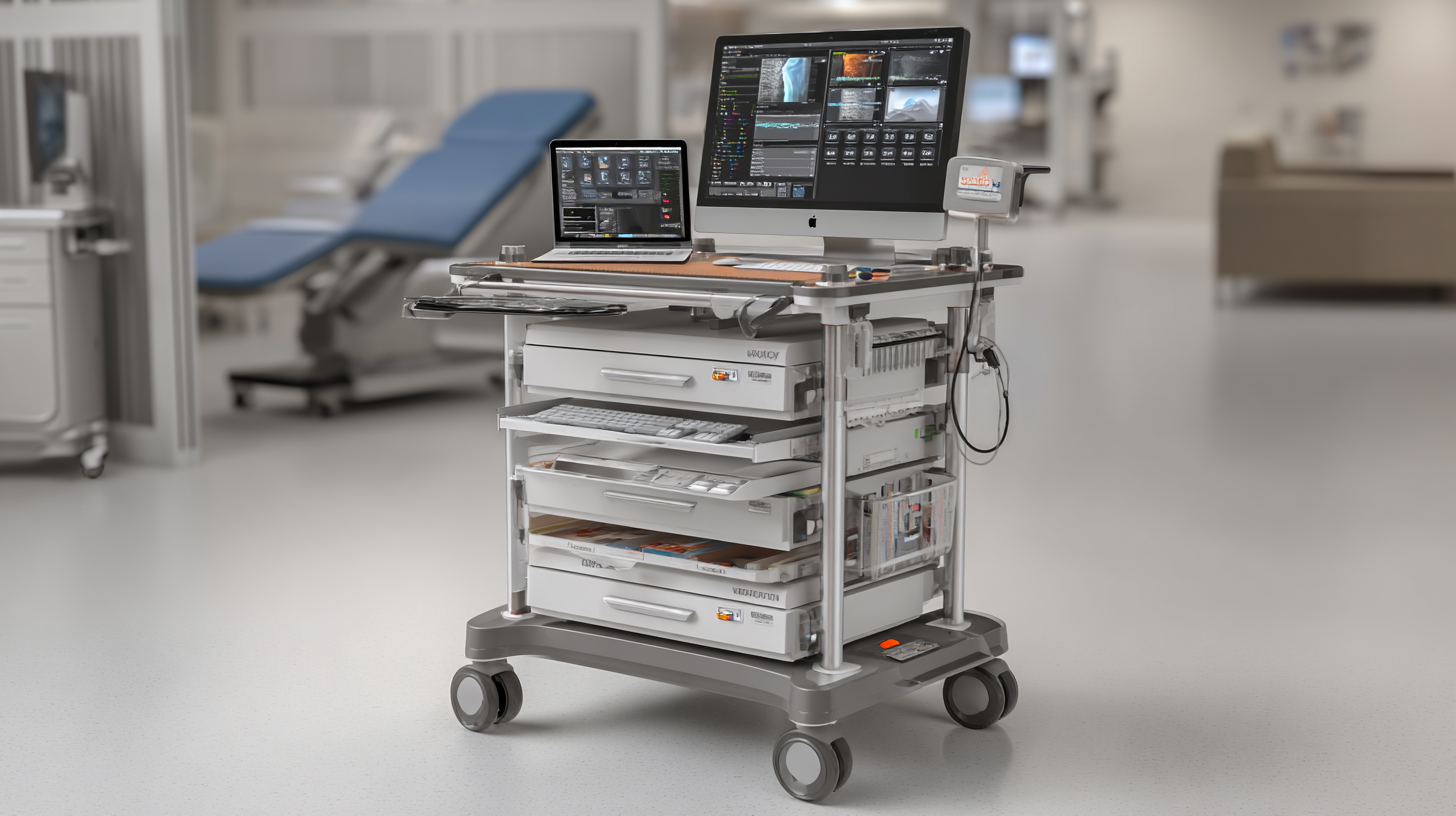
Compare Various Brands and Models for Optimal Value and Performance
When selecting the right medical laptop cart for healthcare facilities, comparing various brands and models is crucial to ensure optimal value and performance. According to a report from MarketsandMarkets, the global mobile medical carts market is projected to reach $1.6 billion by 2026, highlighting the growing demand for reliable and efficient medical carts. Key factors that influence purchasing decisions include mobility, storage capacity, and user-friendly features. Leading brands such as Omnicell, Capsa Healthcare, and Medical Supply Group offer a range of models tailored to different workflows and clinical needs.
For enhanced performance, it’s essential to consider carts that integrate well with electronic health records (EHR) systems. Research indicates that over 75% of healthcare professionals prefer carts equipped with advanced technology to improve patient care. For example, the All-in-One Computer Cart by Medline has received favorable reviews for its versatile design and superior mobility, making it a popular choice among nurses and clinicians. Similarly, the LUCID MEDICAL laptop cart boasts an innovative battery system that provides extended run-time and quick charging capabilities, further enhancing workflow efficiency in busy healthcare environments. By carefully evaluating these options, facilities can maximize their investment in medical laptop carts, ultimately leading to improved patient outcomes.
How to Choose the Right Medical Laptop Cart for Enhanced Workflow Efficiency in Healthcare Facilities
| Model | Weight Capacity | Battery Life | Height Adjustment | Price Range |
|---|---|---|---|---|
| Model A | 50 lbs | 8 hours | 20 inches | $700 - $900 |
| Model B | 40 lbs | 6 hours | 18 inches | $600 - $800 |
| Model C | 60 lbs | 10 hours | 22 inches | $800 - $1,000 |
| Model D | 45 lbs | 7 hours | 19 inches | $650 - $850 |
Related Posts
-
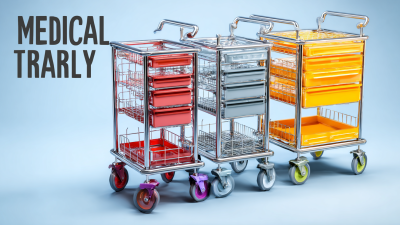
Top Strategies for Choosing the Best Medical Trolley Cart for Your Facility
-
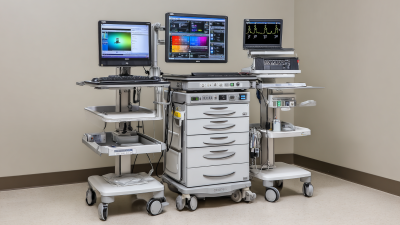
Ultimate Guide to Choosing the Best Medical Computer Cart for Your Facility
-
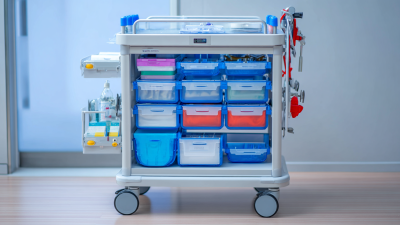
7 Essential Tips for Choosing the Best Rolling Medical Cart
-
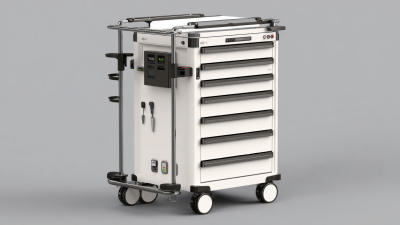
Exceptional Manufacturing from China's Leading Factory for Best Mobile Medical Carts
-

Maximize Efficiency: Essential Tips for Choosing the Right Medical Computer Cart
-

Exploring Isolation Cart Alternatives Through Industry Innovations and Best Practices
